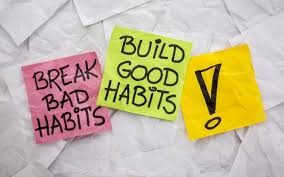 Many people continue to believe that you are either a math person, destined to be able to do math easily, or you’re not. If you’re not, math classes will always be hard, and you’ll never be comfortable with numbers and calculations. This type of thinking is seriously misguided, and really sends the wrong message to any student that is exposed to this idea.
Many people continue to believe that you are either a math person, destined to be able to do math easily, or you’re not. If you’re not, math classes will always be hard, and you’ll never be comfortable with numbers and calculations. This type of thinking is seriously misguided, and really sends the wrong message to any student that is exposed to this idea.
Improving Academic PerfORMANCE
Learn how to improve yourself through targeted learning and improved study skills.
Posts about how to improve my grades:
Creative Ways to Increase Student Motivation and Improve Grades
There are a few things we know for sure about individuals who perform really well in school, get really good at a sport, or become highly skilled musicians or artists. And if you think one of those things involves having a special gift, an innate talent, or an especially high IQ, you’d be wrong. The latest science suggests that the following concepts and questions factor heavily into whether a student builds skill and ultimately performs well in any given academic, athletic, or artistic domain:
Using the Science of Habits to Improve Performance in School: Part II
 In a previous article on the power of habits, we discussed how habits are a tool our brains use to be more efficient. Instead of consciously analyzing every situation, thinking about various courses of action, and then deciding what to do, we use habits to automatically do this or that to save time. In theory, this allows us to decide to use our brain power to focus on things that really matter and really do require conscious deliberation. This is sometimes a good and sometimes a bad thing. It’s good when the habit is brushing our teeth each morning and night, or looking both ways before we cross the street. It’s bad when we grab a few cookies without even thinking about it when we are bored, or react negatively to constructive feedback.
In a previous article on the power of habits, we discussed how habits are a tool our brains use to be more efficient. Instead of consciously analyzing every situation, thinking about various courses of action, and then deciding what to do, we use habits to automatically do this or that to save time. In theory, this allows us to decide to use our brain power to focus on things that really matter and really do require conscious deliberation. This is sometimes a good and sometimes a bad thing. It’s good when the habit is brushing our teeth each morning and night, or looking both ways before we cross the street. It’s bad when we grab a few cookies without even thinking about it when we are bored, or react negatively to constructive feedback.
Using the Science of Habits to Improve Performance in School: Part I
 We write a lot on this blog about how academic success (and other types of success) is much more a function of the choices you make and the effort you put in than a function of your intrinsic or genetic talents. In other words, most recent research suggests, and we firmly believe, that academic skills are built through practice and success comes through developing better strategies and making better choices.
We write a lot on this blog about how academic success (and other types of success) is much more a function of the choices you make and the effort you put in than a function of your intrinsic or genetic talents. In other words, most recent research suggests, and we firmly believe, that academic skills are built through practice and success comes through developing better strategies and making better choices.
The Motivation to Learn: What Inspires It?
 Have you ever wondered what motivates students to learn something new, especially when the subject or material might be rather complex or difficult? What helps students stay focused, engaged, excited, and diligent? According to data gathered from various schools and grade levels, there are three major areas that impact a student’s likelihood to stay motivated and tackle complicated subject matter.
Have you ever wondered what motivates students to learn something new, especially when the subject or material might be rather complex or difficult? What helps students stay focused, engaged, excited, and diligent? According to data gathered from various schools and grade levels, there are three major areas that impact a student’s likelihood to stay motivated and tackle complicated subject matter.
Breaks, Mini-Tests, and Multi-Task Avoidance: Three Ways to Study Better
 Few people like to do homework or study for a test. But it’s obviously important to do these things to perform well in school. And if you must engage in these activities, you might as well be as efficient and productive as possible. You want to get as much benefit from each hour you invest in studying as possible.
Few people like to do homework or study for a test. But it’s obviously important to do these things to perform well in school. And if you must engage in these activities, you might as well be as efficient and productive as possible. You want to get as much benefit from each hour you invest in studying as possible.
